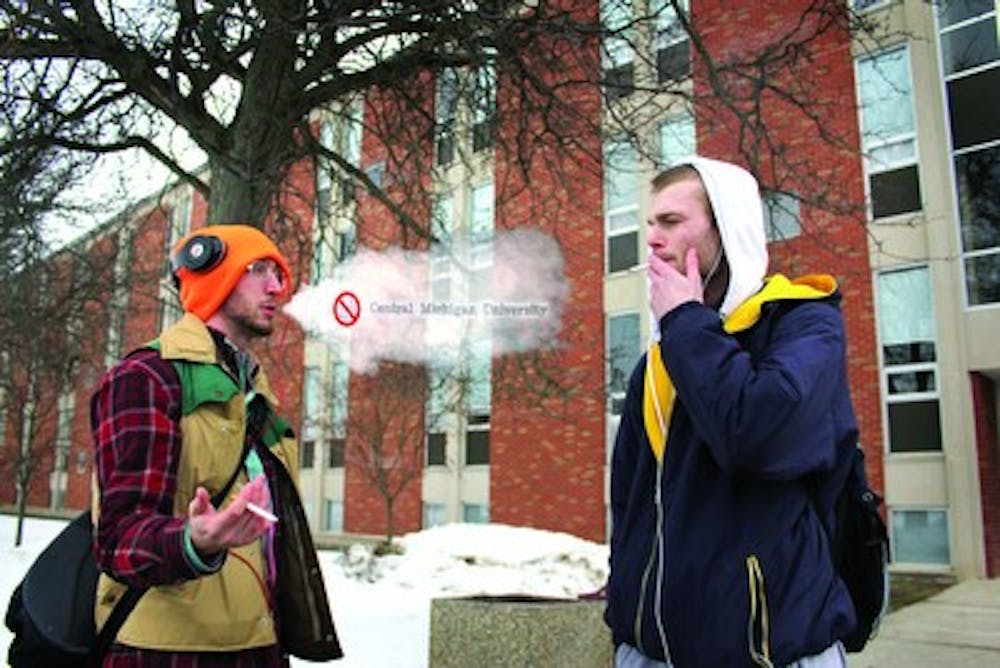Mixed student reactions on university, statewide smoking policies
As Central Michigan University prepares to enact its tobacco-free policy in July, students are decidedly mixed over the policy itself and smoking in general.
CMU announced in October that it is changing its smoking policy to ban the use of cigarettes, e-cigarettes, chewing tobacco, pipes, cigars, hookahs, waterpipes, snus and snuff on campus, with exceptions carved out for theatrical productions and religious or cultural ceremonies. Smoking will only be allowed on campus inside of private vehicles with windows rolled up.
"I'm a smoker, and I hate (the new policy)," said Detroit senior Bryan Boatner. "My biggest issue is how are you going to enforce it? It's going to make a lot of people upset, and I don't see how this can really be enforced. Are you just going to knock on car doors and tell people to stop? It doesn't make sense."
The policy will be enforced with what CMU calls a "good neighbor initiative," relying on the campus community to remind each other of the policy if they were to see someone breaking it.
The university cited a February 2013 study it conducted showing 70 percent of its 4,700 respondents favoring a smoking ban.
“We want this to be a culture that supports health, so we support having a policy making that statement,” Associate Vice President of Human Resources Lori Hella told Central Michigan Life shortly after the policy was unveiled.
The current policy allows smoking to take place a minimum of 25 feet from building entrances, windows and air intake valves.
"I don't smoke on campus, and I don't encourage it, but the policy change is, in my view, unnecessary," said Grand Rapids senior Jeff Malinowski. "The previous policy works as is."
The policy change comes at a time when smoking and selling tobacco products have come under fire. CVS/Pharmacy announced earlier this year that it would stop selling tobacco products in its stores, including its Mount Pleasant location, by Oct. 1.
The State of Michigan banned smoking in most public places in May 2010. The Food and Drug Administration has ramped up its anti-smoking campaign in recent years, including the launch of a graphic, $115 million advertising campaign targeted at dissuading teens from smoking.
CMU's policy is designed to promote campus-wide health, University President George Ross said earlier this year.
“The health and well-being of all students and employees is a top priority,” Ross said. “We want to provide everyone with a chance to attend school, live and work in a safe and healthy environment.”
CMU joins the University of Michigan, Saginaw Valley State University and Delta College, among others, to go tobacco-free.
Sterling Heights senior Ashley Rowe, who previously attended Macomb Community College, which has a similar smoking ban, said she has "mixed" feelings about the policy.
While she said she sympathizes with the university with regards to being smoke-free, she has an issue with having to smoke in private vehicles with the windows rolled up.
"To be in your car with the windows up, that's even more unhealthy for whoever might be in that car than just smoking outside," Rowe said.





